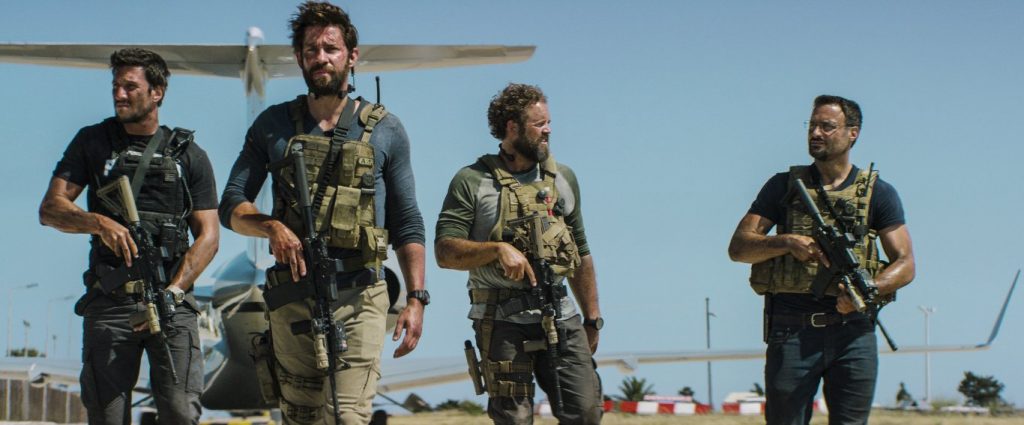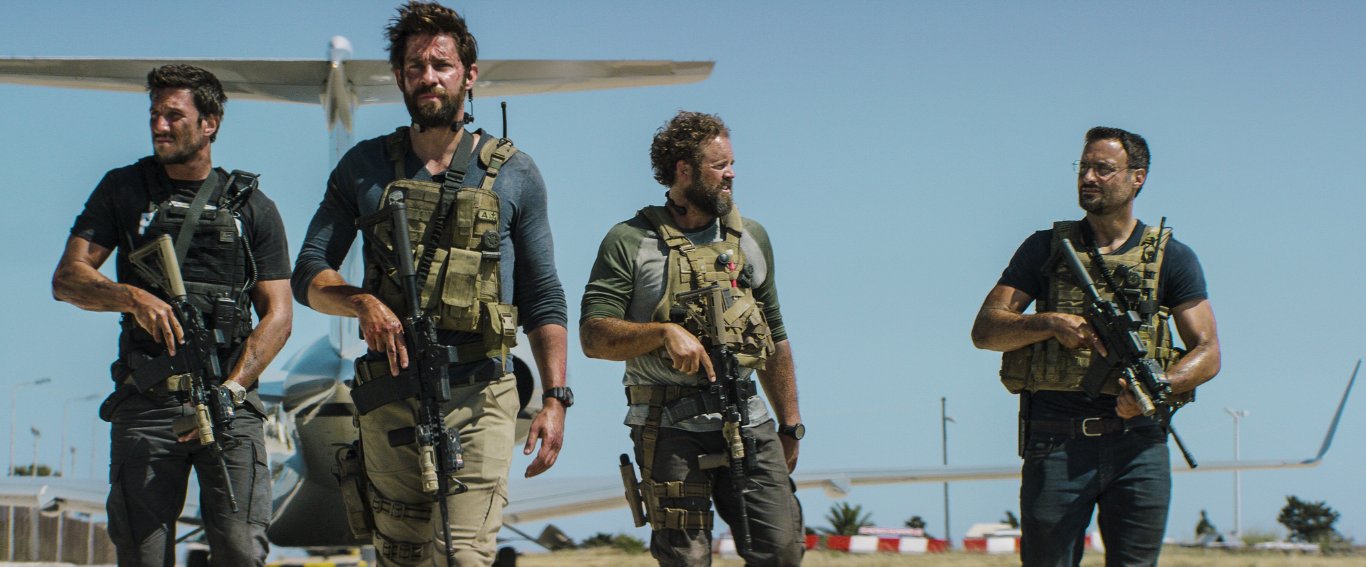You can’t tell the good guys from the bad guys.
Jack Silva (John Krasinski) hears this line early in 13 Hours: The Secret Soldiers of Benghazi, and the rest of the film affirms its truth over and over again. What follows is a story of chaos and ineptitude that simultaneously questions the failures of the American intelligence community and celebrates the heroism of the men who fought to make up for them.

IMDb
13 Hours, from director Michael Bay, relates the events of the much-publicized Benghazi fiasco, which took the lives of four Americans stationed in Benghazi, Libya in September of 2012 and led to much questioning of President Barack Obama and then Secretary of State Hillary Clinton. Bay’s film follows Silva as he joins the security team stationed at a CIA outpost in the titular Libyan city. What ensues is a dramatic retelling of the days and hours leading up to the firefights of September 11, 2012, though just how dramatic remains difficult to determine, considering the diplomatic shroud still lingering over the events depicted. Bay has undoubtedly crafted his most thoughtful film, one that even Transformers 5 will struggle to dethrone.
Krasinski, along with a supporting cast that includes James Badge Dale (The Pacific) and Pablo Schreiber (Orange is the New Black), produces plenty of memorable scenes, but gunfire and mayhem often are the true stars of the film. Krasinski’s everyman quality makes for a sentimental soldier, one whose calls home are just as compelling as his dangerous covert missions. Schreiber, who plays “Tanto,” provides much of the film’s comic relief, though the laughs are harder to come by as the real and diplomatic fires spread. David Costabile (Breaking Bad) serves as the stubborn CIA chief who clashes with Silva and the rest of the security team, though limited screen time renders his character somewhat insubstantial.
Perhaps most impressive is Bay’s direction, still explosive but far short of the ostentatiousness that has turned him into a sort of laughingstock in recent years. Bay’s name inevitably calls to mind explosions, and jokes about them, but here he uses the pyrotechnics not just for show but instead because the real events were violent and destructive beyond belief. As the film hits its stride and rushes toward conclusion, the air fills with smoke, reminding viewers just how murky the image of these events became. The story does not ask much of Bay outside of the tense combat scenes, but he nevertheless succeeds in depicting Benghazi as a dreary, hostile maze.
If there is a broader flaw to the film, it lies in Chuck Hogan’s screenplay, which moves serviceably from scene to scene but mostly features redundant bouts of soldier speak. At times the balance between crafting an exciting action movie and infusing a political spin feels awkward, perhaps due to Bay’s lack of experience in this realm. The defense contractors read and hear the statement, “All the gods, all the heavens, all the hells, are within you.” What could be a poignant line, one reminiscent of seminal war films such as Platoon and Apocalypse Now, ends up feeling empty without other memorable sequences of dialogue for support. Hogan humanizes the men by touching on their various domestic struggles and the people for whom they long, but more attention could have been paid to the politics of the situation, which one assumes are of more importance to the average viewer. Krasinski and the rest of his castmates play the soldiers tough and masculine, almost to a fault. By the time the emotional climax comes about, their acting feels a bit flimsy.
Simply put, Michael Bay has given us an entertaining action movie about a fascinating and endlessly frustrating story. One could argue that we would be better off with a film detailing the fallout that followed the attacks — or perhaps one that told a less dramatized account of the attacks themselves — but this is what we have.
On the surface, “you can’t tell the good guys from the bad guys” tells of the difficulty of determining which Libyans are truly hostile to the U.S. and its endeavors. By the end of the film, however, the statement reaches further, making the audience scorn not only the attackers but also the so-called protectors who failed to adequately identify and confront the threat posed in Benghazi. Its lesson is that many of those deserving of blame lie within our borders, seated comfortably behind our most well-protected walls.





